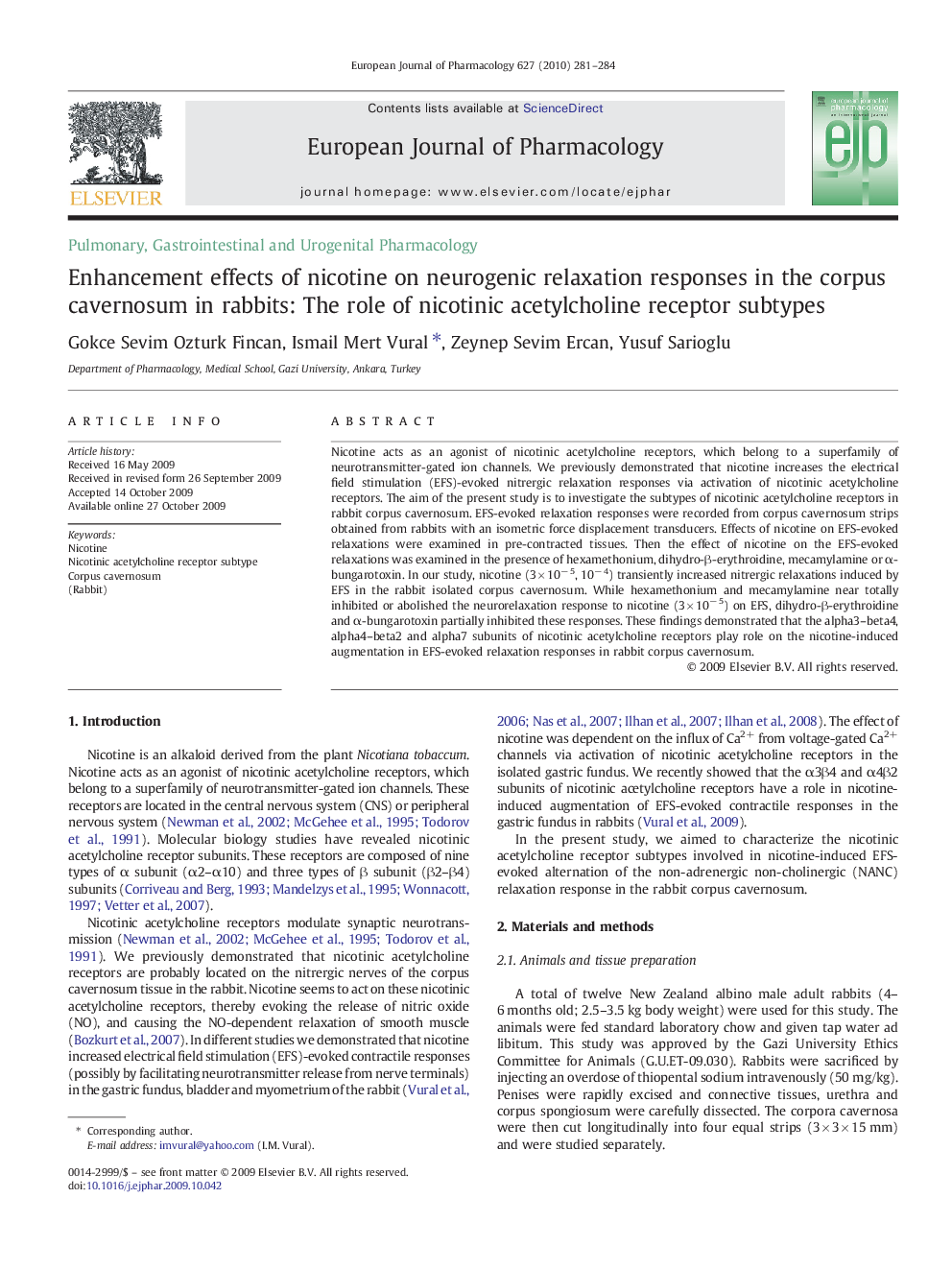| Article ID | Journal | Published Year | Pages | File Type |
|---|---|---|---|---|
| 2533779 | European Journal of Pharmacology | 2010 | 4 Pages |
Nicotine acts as an agonist of nicotinic acetylcholine receptors, which belong to a superfamily of neurotransmitter-gated ion channels. We previously demonstrated that nicotine increases the electrical field stimulation (EFS)-evoked nitrergic relaxation responses via activation of nicotinic acetylcholine receptors. The aim of the present study is to investigate the subtypes of nicotinic acetylcholine receptors in rabbit corpus cavernosum. EFS-evoked relaxation responses were recorded from corpus cavernosum strips obtained from rabbits with an isometric force displacement transducers. Effects of nicotine on EFS-evoked relaxations were examined in pre-contracted tissues. Then the effect of nicotine on the EFS-evoked relaxations was examined in the presence of hexamethonium, dihydro-β-erythroidine, mecamylamine or α-bungarotoxin. In our study, nicotine (3 × 10− 5, 10− 4) transiently increased nitrergic relaxations induced by EFS in the rabbit isolated corpus cavernosum. While hexamethonium and mecamylamine near totally inhibited or abolished the neurorelaxation response to nicotine (3 × 10− 5) on EFS, dihydro-β-erythroidine and α-bungarotoxin partially inhibited these responses. These findings demonstrated that the alpha3–beta4, alpha4–beta2 and alpha7 subunits of nicotinic acetylcholine receptors play role on the nicotine-induced augmentation in EFS-evoked relaxation responses in rabbit corpus cavernosum.
